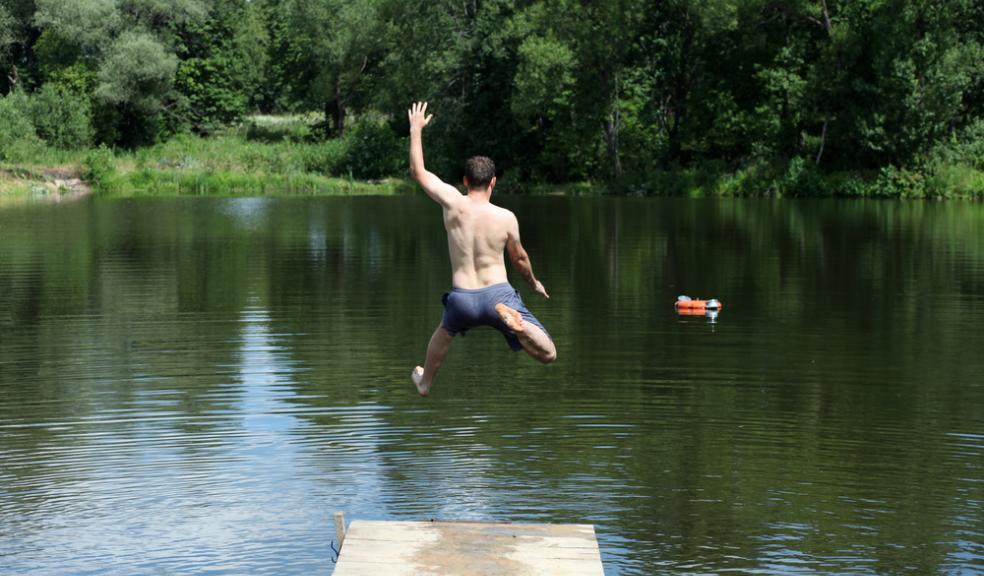
Cold water shock warning
Devon & Somerset Fire & Rescue Service is joining with fire and rescue services across the UK in supporting the Chief Fire Officers Association’s Drowning Prevention and Water Safety Week 2015, taking place from 13-19 April.
The campaign is focusing on raising awareness of the issue of Cold Water Shock by encouraging everyone, but especially young people to share the message ‘Tell a friend. Save a friend’ and to be aware of the risks around water.
The intention is to hopefully reduce preventable water fatalities in young adults aged 16-30, as this age saw the highest number of water-related deaths in 2013.
Cold water shock
Cold water shock causes a number of fatalities every year as young people – even those who are strong swimmers – aren’t aware of the effect that it can have on their ability to swim in open water. On a warm day, the temperature of the water in a reservoir, quarry, lake or pool can remain very cold and the shock of cold water creates a physical response that can make it more difficult to swim, and can even cause death.
CFOA’s Water Safety Lead, Dawn Whittaker, warned: “While reservoirs, lakes, rivers and other inland water may look safe and inviting, particularly on a warm day, there are hidden dangers below the surface that could make you ill, hurt you, and – at worst – could kill you.
“Cold Water Shock is a physical response that can not only affect your breathing, but will reduce your muscle ability and can even lead to a heart attack. Moving water, such as rivers, may look calm but may have strong currents below the surface which can carry even strong swimmers into danger. And, of course, from out of the water, or above, you may not be able to see dangerous obstructions such as large rocks or dead branches that can cause you injury.
“You may also want to consider the fact that open water is untreated, and may be polluted with bacteria and algae that can give you stomach upsets, or even with organisms that can cause a number of nasty illnesses including Weil’s Disease, Trachoma and Whipworm.
Paul Godwin, Devon & Somerset Fire & Rescue Service, Specialist Rescue Manager explained: “The week has been scheduled in April to start the water safety awareness year early, as drowning’s take place throughout the year. In April 2013, fatality figures rose, and peaked in July and August. The fire service hopes by getting our message out early we can encourage young people not put themselves at risk of injury and to think about their behaviour around water, in time for the good weather that has arrived during April”.
“Cold water shock is a particular concern at this time of year, as the temperature of the air may be significantly higher than that of the water. Cold water shock will make you shiver affecting your coordination and swimming ability. Cold water can claim lives.”











